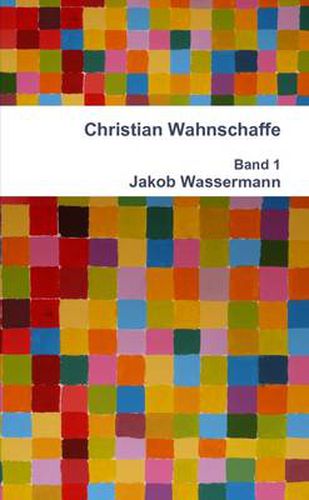Readings Newsletter
Become a Readings Member to make your shopping experience even easier.
Sign in or sign up for free!
You’re not far away from qualifying for FREE standard shipping within Australia
You’ve qualified for FREE standard shipping within Australia
The cart is loading…






This title is printed to order. This book may have been self-published. If so, we cannot guarantee the quality of the content. In the main most books will have gone through the editing process however some may not. We therefore suggest that you be aware of this before ordering this book. If in doubt check either the author or publisher’s details as we are unable to accept any returns unless they are faulty. Please contact us if you have any questions.
Nach Kriegsende kam der zweibandige Roman Christian Wahnschaffe (1919, Neuausg. 1932) heraus, die Lebensgeschichte eines Grossburgersohns, die Wassermann seiner neuen Lebensgefahrtin Marta Stoss, geborene Karlweis, widmete. Mit ihr ubersiedelte er 1919 nach Altaussee, nachdem er seine Frau verlassen hatte, welche die Scheidung durch immer neue Prozesse und Geldforderungen bis 1926 hinauszogerte.
$9.00 standard shipping within Australia
FREE standard shipping within Australia for orders over $100.00
Express & International shipping calculated at checkout
This title is printed to order. This book may have been self-published. If so, we cannot guarantee the quality of the content. In the main most books will have gone through the editing process however some may not. We therefore suggest that you be aware of this before ordering this book. If in doubt check either the author or publisher’s details as we are unable to accept any returns unless they are faulty. Please contact us if you have any questions.
Nach Kriegsende kam der zweibandige Roman Christian Wahnschaffe (1919, Neuausg. 1932) heraus, die Lebensgeschichte eines Grossburgersohns, die Wassermann seiner neuen Lebensgefahrtin Marta Stoss, geborene Karlweis, widmete. Mit ihr ubersiedelte er 1919 nach Altaussee, nachdem er seine Frau verlassen hatte, welche die Scheidung durch immer neue Prozesse und Geldforderungen bis 1926 hinauszogerte.